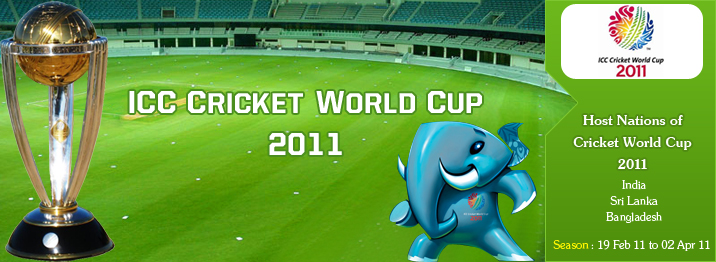World Cup could cement Afridi's captaincy credentials
Until 2009, the words
Shahid Afridi and captaincy were used only in the lingo of left-field cranks in Pakistan. Captaincy, they said, would settle down an intrinsically hyper man; the rest, in generally exasperated tones, asked how such a personality could bring any stability to ten others?
Those leftists won when he took over first as T20 captain in 2009 and then again when he became ODI leader last year (he had captained two ODIs as stand-in before). But they lost when he chewed on a ball in Perth and did so again when he abruptly walked away from the Test captaincy after losing to Australia last year at Lord's.
Even the PCB isn't sure about Afridi's captaincy credentials, though that is about par for the course for them. They've only ever appointed him captain on a series-by-series basis. Until two weeks before the tournament began they still weren't sure. It probably suits him, the uncertainty of it, given how he plays every game potentially as his first and last: lose and be gone, win and there won't be a hero like you.
And yet, here he is, as captain in a
World Cup, the biggest platform of them all, and one on which he has been a miserable presence: 125 runs and seven wickets in 12 games. Over the next many weeks, one side will claim victory.
For what little its worth, this scribe has come round to the idea of Afridi, the captain. Nine wins and 11 losses say little, but he hasn't done a bad job really. He's consultative but strong-minded enough to ignore advice he doesn't like. He has an involved presence in the field, though it might not be a bad option for the bowlers to carry around earplugs. This is Afridi, so nuanced understanding of strategy and tactic need not take up too much time here. In any case, barring two, possibly three, the great Pakistani tactician-leader does not exist: personality and the ability to create and seize a collective vibe are far more important.
And it's not as if he has had the greatest luck with the personnel available, or that he has led in particularly settled times, or that alternatives are overflowing. In fact, you'd be right to question the mind of any man who
does take on the captaincy. Like the Presidency of Pakistan, if it brings rewards, arguably it brings greater tension and pitfalls, as Afridi noted a day ahead of his side's opener against Kenya in Hambantota.
"It's difficult to be the captain, in India or Pakistan it's difficult to handle it," he said with an old, worn smile. "Situations are tough at times but you have to come out of that, you have to give sacrifice at times, but my effort is always that I do well as captain. It was difficult in the beginning, when we had all those issues, we had to rebuild, we had to lift the team again and that was affecting my performances but now our team is settled and we have a good combination. I think in my 13-14 year career, we haven't done as much hard work as we are doing now."
Publicly he has said that the delay in appointing him and the criticism from various ex-players doesn't affect him. Here, he said it again. "My chairman had already announced me captain for the World Cup but I never felt worried about whether I am the captain or not. I am enjoying my cricket both as captain and player. That is the main thing."
But inside, it has bothered him as, naturally, it would anyone. He is quick to tell anyone who questions his position and place, for example, that he was Pakistan's top ODI run-scorer and joint leading wicket-taker in 2010. Lead by deed in Pakistan and half the job is often done.
A semi-final spot is a realistic target he believes. Any further, and not for the first time in Pakistan, left-field cranks will have won the day.

















 Reply With Quote
Reply With Quote







 abhi lagaya hai maine
abhi lagaya hai maine
